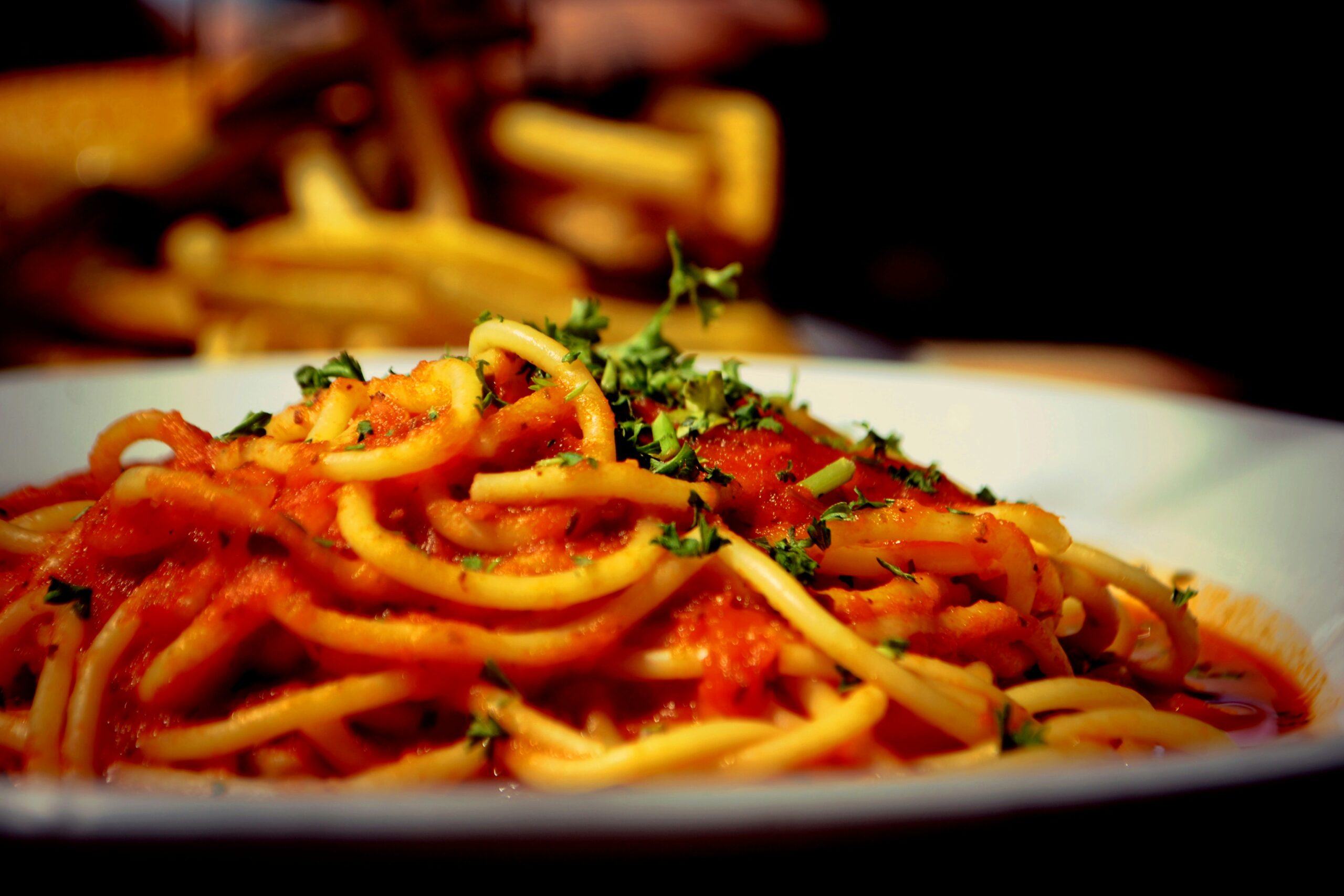
Zero Waste Pantry Pasta Recipe
Servings: 4 Ingredients 340g pasta (any variety you have on hand) 45ml olive oil (approx. 3 tablespoons) 3-4 cloves garlic, minced (or dried garlic powder if you don’t have fresh) 400g can of diced tomatoes
FareShare boosts sustainability commitment with new green initiatives
Sustainability has been a core driver for FareShare since we set out rescuing food that would otherwise go to waste. But we haven’t stopped there!
From installing Tesla batteries to store and share our solar energy to recycling soft plastics and composting or repurposing our food scraps, we’re doing our best to tackle climate change and reduce our environmental footprint.
The installation of Tesla batteries at our Melbourne warehouse is set to be a game changer. Donated by FareShare’s long term partner ENGIE, the batteries connect us to the Simply Energy Virtual Power Plant, allowing us to store over 40 kWh per day in energy generated from our solar panels, use it at night, and share any surplus with the local community. The result is great news for FareShare’s environmental and financial sustainability. Thanks ENGIE (and their retailer Simply Energy).
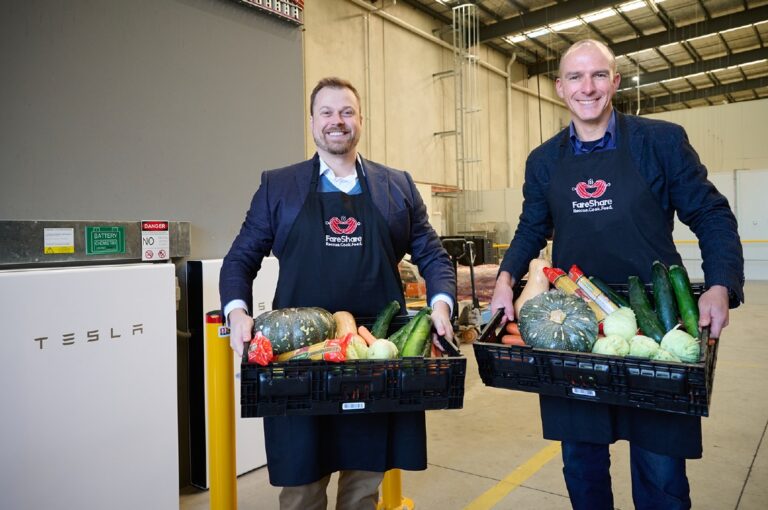
By creating very little waste, our kitchens are firmly committed to being sustainable. What little food scraps we have are either composted or sent to places that can repurpose them into gardening products.
Earlier this year, we partnered up with Reground, a social enterprise that helps organisations create a circular economy through waste collection and minimisation projects. They collect and recycle our soft plastic waste to keep it out of landfill and our oceans.
FareShare’s new single-serve meals help reduce the risk of food waste, which is much more likely to occur when people are given a large portion. Our single-serve trays, films and sleeves are recyclable too.
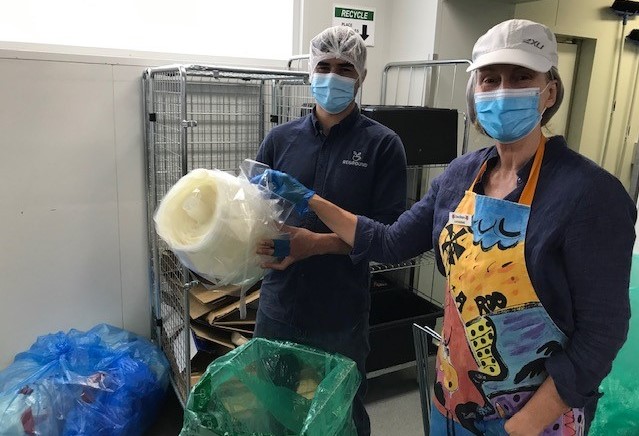
Our warehouse has recently switched to a reusable pallet wrap made from polyester and PVC. These can be used thousands of times, massively reducing our reliance on single-use, stretch-film, plastic pallet wraps.
FareShare has also increased its use of reusable crates to transport meals and food. This makes them easier to stack and carry, and is much appreciated by the frontline charities who hand out our meals. The crates also save cardboard and the need for charities to recycle.
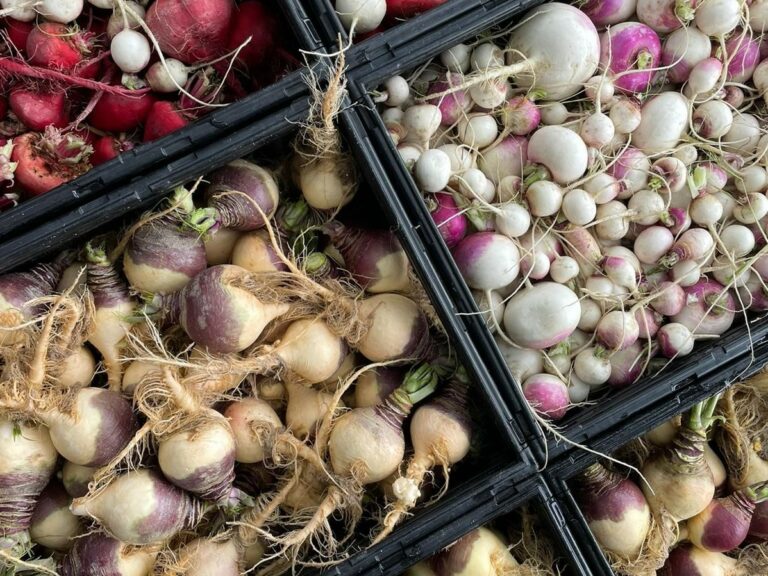
All three FareShare kitchen gardens in Melbourne are using mushroom straw (a waste product from mushroom growing) as mulch. A local mushroom grower uses organic wheat straw (a waste product from the wheat industry) and shares her spent straw for our gardens and compost. Full circle back to the soil! The benefits include an increase in our soil’s organic matter and less water evaporation, which reduces irrigation volumes and frequency.
Our Melbourne gardens optimise crop rotation to reduce pests and the impacts of soil-borne pathogens, such as white blister. They also plant flowers to house beneficial insects to counter the pest insects.
Stay tuned to our blog for more sustainability updates, the latest from our frontline charities, FareShare news, and much more. Or help us continue to innovate sustainably, and to cook free, nourishing meals for people who need them, by donating here.
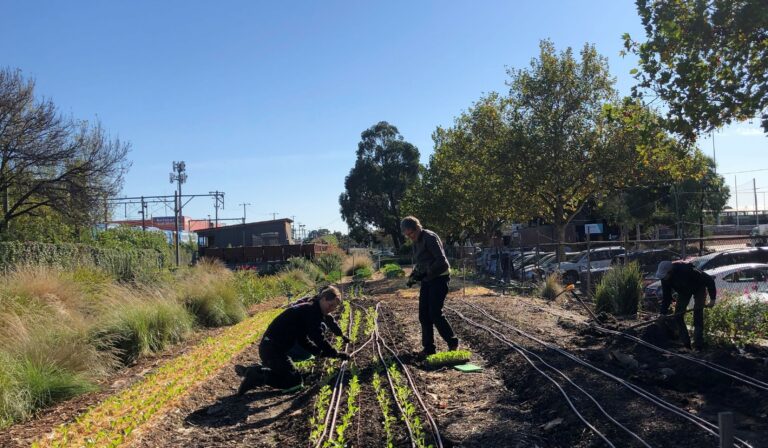

Servings: 4 Ingredients 340g pasta (any variety you have on hand) 45ml olive oil (approx. 3 tablespoons) 3-4 cloves garlic, minced (or dried garlic powder if you don’t have fresh) 400g can of diced tomatoes
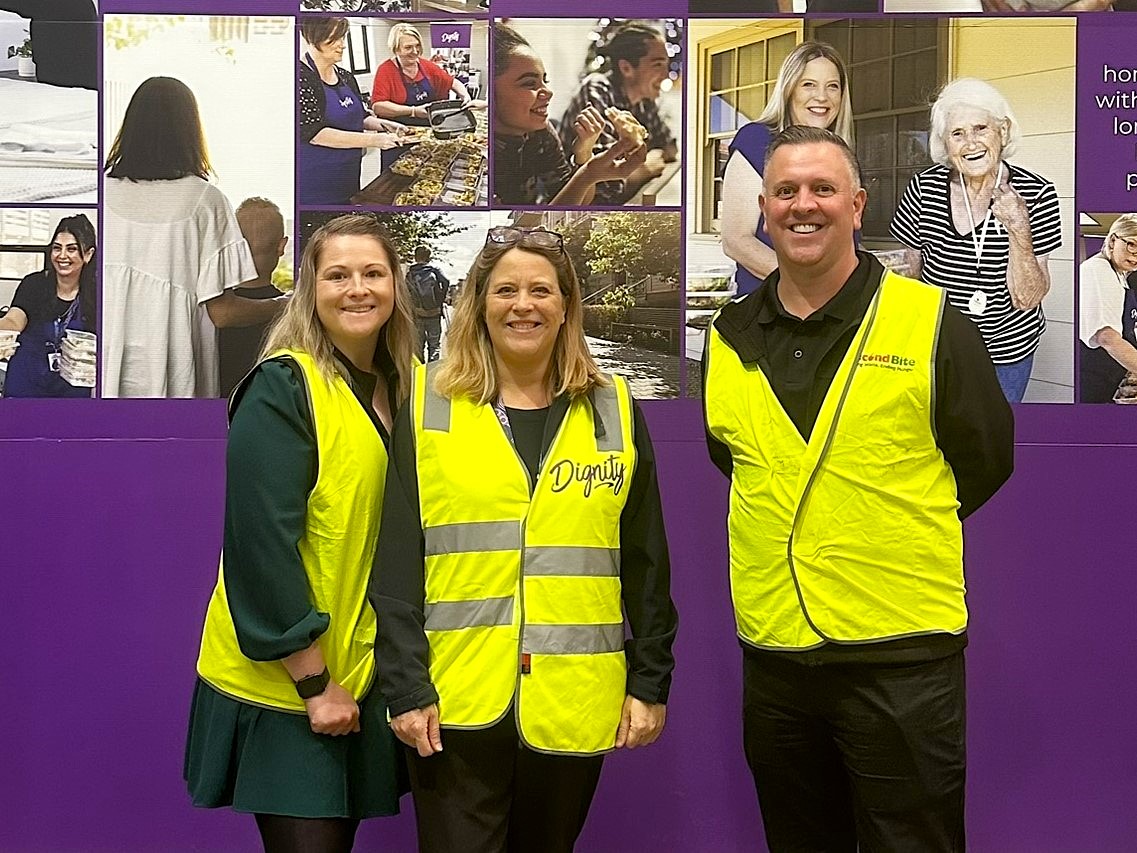
FareShare expands its reach to complement SecondBite produce at NSW homelessness support charity Dignity Capitalising on SecondBite’s extensive infrastructure and networks, which includes dozens of trucks and more than 1,000 charity partners, FareShare meals have
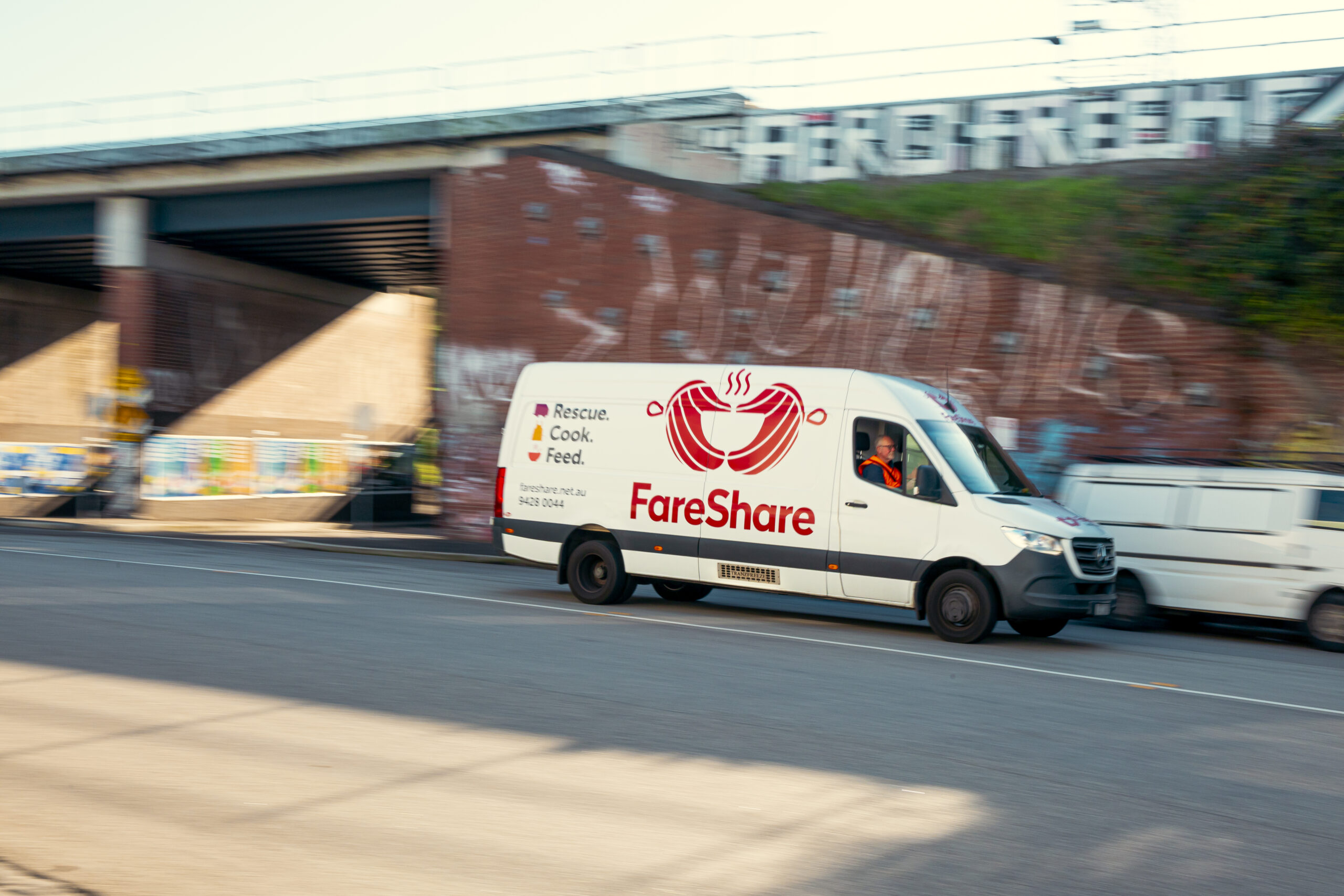
5 things FareShare is looking forward to in 2025 2025 is shaping up to be a big year for FareShare. Here are five things we are looking forward to: 1. Ramping up production in our